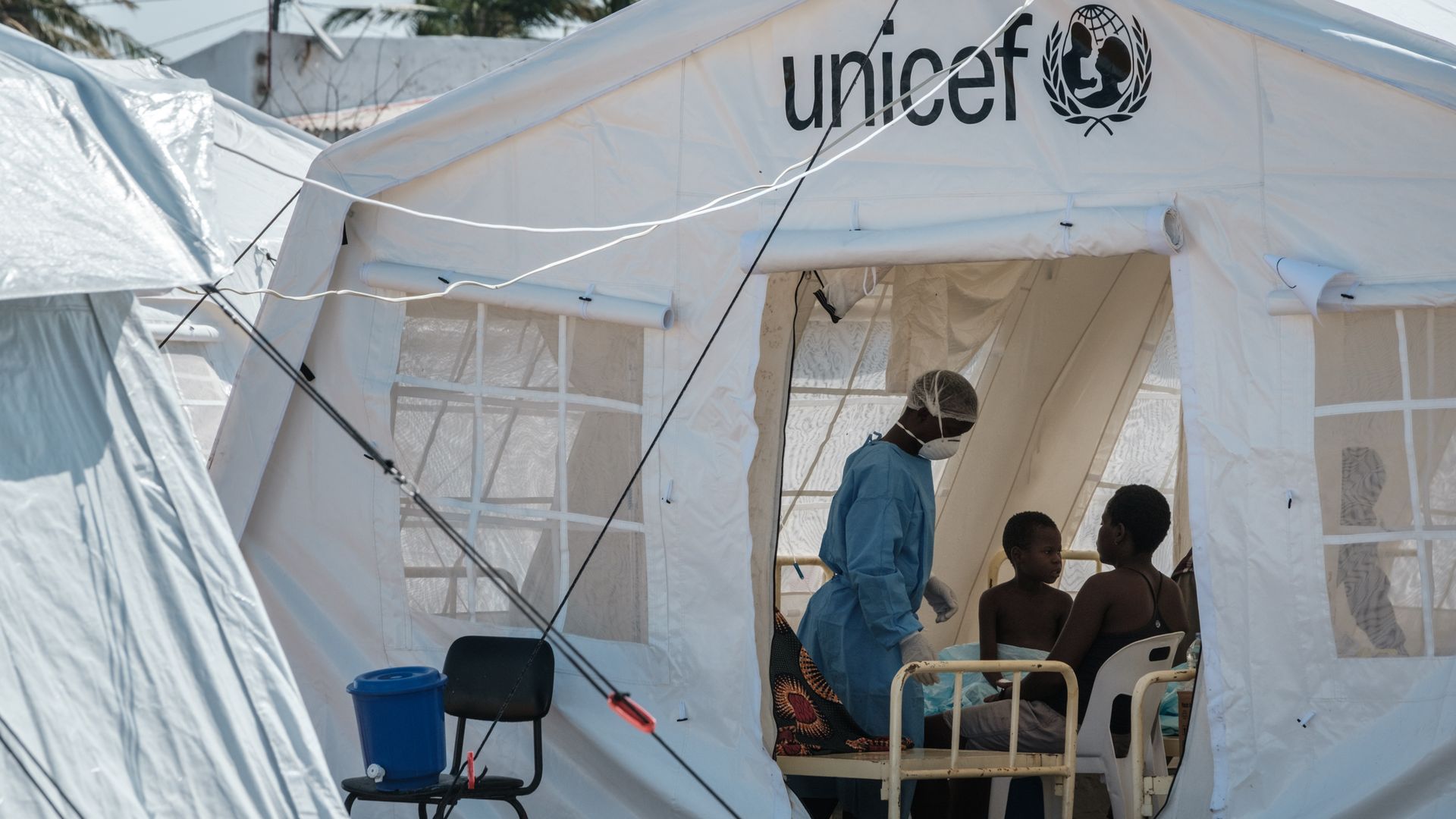Mounting cholera cases add to post-cyclone challenges in Mozambique
Add Axios as your preferred source to
see more of our stories on Google.

A medical treatment tent in Beira, Mozambique. Photo: Yasuyoshi Chiba/AFP/Getty Images
Cholera has returned in the aftermath of the deadly Cyclone Idai that devastated large swaths of southern Africa on March 15.
Why it matters: Catastrophic events have the potential to reverse health, education and income gains in countries like Mozambique and Malawi, which are among the poorest in the world. Approximately half the population in both countries live below the official poverty lines, and many lack access to safe water and toilets.
Background: If untreated, cholera can be fatal. When clinics and hospitals have been destroyed following natural disasters and people are living in close proximity to each other, early detection and treatment are challenging but critical.
What's happening: 1.8 million are need of urgent assistance, with 128,000 living in shelters at 154 sites across Mozambique, Malawi and Zimbabwe. At least 750 people are estimated to have been killed, but that number continues to climb as bodies are discovered.
- Mozambique was already dealing with floods that had displaced 60,000 people — pushing many into crowded shelters — when the cyclone hit, destroying homes, clinics and schools in its path.
- In Beira, Mozambique's fourth largest city, the primary water treatment facility was severely damaged by the storm. At least 1,052 people have been infected by cholera, and one person has reportedly died from the disease.
- Other diseases such as typhoid may also break out. Standing water is a breeding ground for mosquitoes, which transmit malaria.
Where it stands: The WHO has requested $13 million for medical supplies and disaster response in areas cut off by flooding. It has shipped 900,000 doses of cholera vaccine to Mozambique, and a vaccination campaign is set to begin in Beira on April 3.
- USAID has sent a disaster assessment response team and committed $7.3 million to the region.
- NGOs such as Save the Children and MSF are also actively engaged in fundraising and support, with the latter operating a hospital to treat cholera patients in Mozambique.
The bottom line: Though the international donor community has begun responding to the crisis, the specter of cholera death raises further alarm. And with such wide devastation, rebuilding will be a long process.
Tanvi Nagpal is the director of the International Development Program at Johns Hopkins School of Advanced International Studies.
